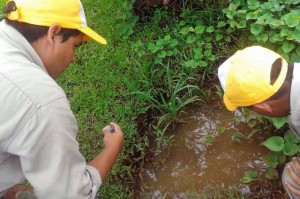
Hungry bacteria can extract energy from sewage….reports India Daily Newsdesk
Sewage contains a source of energy that can be harvested by using hungry bacteria, researchers from Ghent University in Belgium have discovered.
“The levels of organic matter in sewage are too low to be directly recovered. We investigated how we can use bacteria to capture this material,” said one of the researchers Francis Meerburg.
“We periodically starve the bacteria, in a kind of ‘fasting regimen’. Afterwards, wastewater is briefly brought into contact with the starved bacteria which are gluttonous and gobble up the organic matter without ingesting all of it,” Professor Nico Boon said.”This enables us to harvest the undigested materials for the production of energy and high-quality products. We starve the rest of the bacteria, so that they can purify fresh sewage again,” Boon explained. The researchers said their approach is unique because they have developed a high-rate variation of the so-called contact-stabilisation process. By using the contact-stabilisation process, up to 55 per cent of the organic matter could be recovered from sewage, the researchers said.
This is a huge step forward, because the existing processes cannot recover more than 20 to 30 per cent. The researchers calculated that this amount can provide sufficient amounts of energy to completely treat sewage without the need for external electricity.”This is an important step in the direction of wastewater treatment that is energy neutral, or even produces energy,” Professor Siegfried Vlaeminck said.









